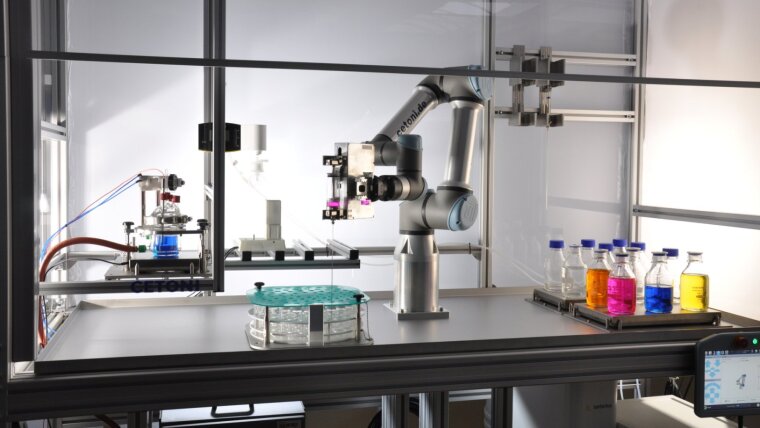
Brief description of the project
Pollutants in the water always also pose a fingerprint of society’s actions. Through scientific-technical progress, new chemicals are being developed continuously. Most of these new pollutants can not currently be removed, which is why new treatment methods need to be developed. The multitude of pollutants and degradation processes, however, requires entirely new problem-solving approaches, which the ‘AutoQSPR’ project aims to develop.
The project develops prediction models of the degradation behaviour of water pollutants in innovative water treatment processes, using quantitative structure-property relationship (QSPR) and deep learning approaches. As subdomain of artificial intelligence, mathematical correlations between a pollutant’s chemical structure and its specific degradation constant are established. To this end, large data sets are required that do not currently exist under standardized conditions. The project aims to analyse up to 1000 molecules in a standardized and automatized manner by means of a lab automatization with high-throughput that has specifically been developed, in order to create a homogeneous experimental data basis in a time-efficient way. The equipment will be developed together with partners from the industry. In the course of the project, the equipment will be completed with an automatized finest dosing of water pollutants and water supplement. Additionally, deep learning approaches for information extraction found in the primary literature are being advanced and integrated.
‘AutoQSPR’ aims to facilitate more precise predictions for pollutant disposal, which leads to more efficient treatment methods and lower operating costs. These technologies are especially valuable for medium-sized enterprises because they offer cost-effective solutions that comply with the law. Cooperations with regional waterworks and industry partners promote the local economy and create new business and employment opportunities.
Contact
07743 Jena Google Maps site planExternal link


